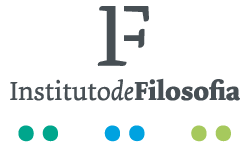Zoom | Masterclass on Wittgenstein (Charles Travis )
From: 2021-09-08 To:2021-09-08
Thematic Line
Modern & Contemporary Philosophy
Research Group
Mind, Language & Action
Masterclass on Wittgenstein
Professor Charles Travis (King’s College London and University of Porto)
Morning Session | 11h00-13h00
Philosophical Investigations §§316-693 (Three Main Themes)
The last stretch of PI (part 1) appears, superficially, at least, disorderly. Is there, beneath the surface, some unifying order? This talk suggests three running themes (Leitfäden): 1. The Myth of Interiority (the term is Jacques Bouveresse’s); 2. The variety of ways of being given to oneself (also a main theme of the late MSS); 3. The price of the true (warding off the spectre of idealism). This last theme is less to the fore than the first two (in PI, that is). But not one Wittgenstein can or does ignore. The first Leitfaden naturally carries the second with it. It is an idea Wittgenstein came to in 1931, inspired by a reading (with Waismann) of Frege’s Grundgesetze vol. 2 (so reading itself inspired by Hilbert with his new conception of mathematics). I suggest that this first Leitfaden set Wittgenstein off on a new track. It meant discarding the Russellian influence which still existed in the Tractatus, which, correlatively, brought Wittgenstein closer to Frege. The change in direction was thoroughgoing. Thus Wittgenstein’s philosophical career cannot be read as a unified whole.
Afternoon Session | 15h00-17h00
Two Disjunctivisms (Hinton, McDowell): Where They Differ, How Each Relates to Wittgenstein
Current disjunctivism spread out from the Cherwell rather than the Cam. Its origin (I suggest) was Austin, and, following this further back, John Cook Wilson and H. A. Prichard. The inspiration for this particular turn in the Cook Wilsonian tradition was J. M. Hinton.
Hinton’s disjunctivism concerns perception. In roughly 1980 John McDowell presented disjunctivism whose topic was knowledge. Perception (sight, touch, smell, etc.) is one sort of success. Knowledge (whose object is ‘propositional’) is a quite different form. Unsurprisingly, the two disjunctivisms take, correspondingly, substantially different forms. Each connects with an aspect of Wittgenstein’s work. McDowell’s does so most directly because Wittgenstein is directly a topic in his landmark essay, ‘Criteria, Defeasibility and Knowledge’. Hinton’s disjunctivism connects most directly with Wittgenstein on that topic popularly known as ‘private language’. In this afternoon discussion I mean to say how.
Charles Travis received his BA from the University of California, Berkeley, and his PhD from UCLA. He has taught in the US, Canada, The Netherlands and the UK, having spent most of his career in the last three countries. Currently he is Emeritus Professor of Philosophy at King’s College London, Full Professor at Tsinghua University-Beijing, a member of the Institute of Philosophy at the University of Porto and President of SPFA (Portuguese Society for Analytic Philosophy). He is the author of various influential works on philosophy of language, logic and perception including The Uses of Sense: Wittgenstein’s Philosophy of Language (OUP, 1989), Thought's Footing: Themes in Wittgenstein's Philosophical Investigations (OUP, 2006), Occasion-Sensitivity (OUP, 2008), Objectivity and the Parochial (OUP, 2010), Perception: Essays After Frege (OUP, 2013) and Frege: The Pure Business of Being True (OUP, 2021).
For more information about the project, please visit: https://ifilnova.pt/en/research-projects/epistemology-of-religious-belief-wittgenstein-grammar-and-the-contemporary-world/ and https://erb.fcsh.unl.pt
Organization:
Robert Vinten (IFILNOVA), Nuno Venturinha (IFILNOVA) and Sofia Miguens (IF/UP)
Project “Epistemology of Religious Belief: Wittgenstein, Grammar and the Contemporary World” (PTDC/FER-FIL/32203/2017)
Reasoning and Argumentation Laboratory (ArgLab) of IFILNOVA
RG Mind, Language and Action Group (MLAG)
Instituto de Filosofia da Universidade do Porto – FIL/00502
Fundação para a Ciência e a Tecnologia (FCT)
